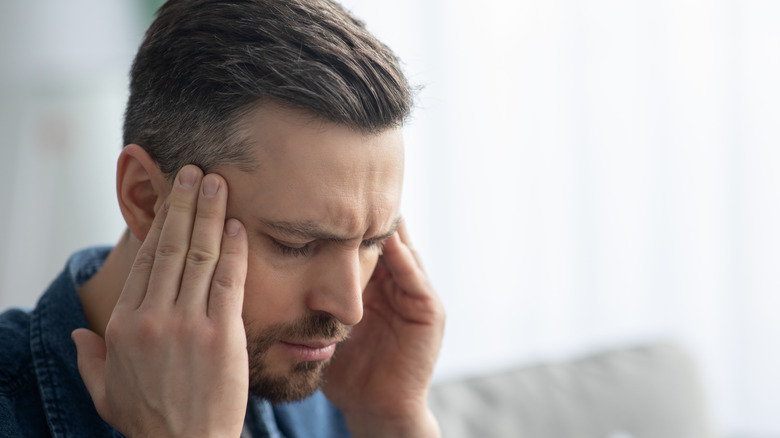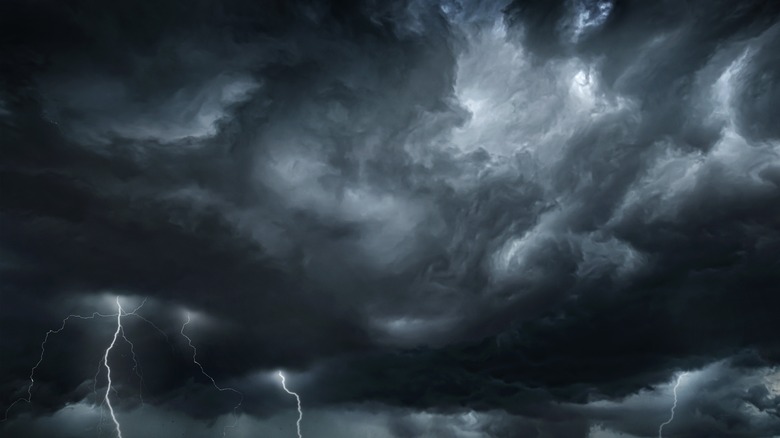How Changes In Weather Are Linked To Migraines
Migraines are severe headaches that typically cause intense throbbing on one side of the head, per the National Health Service (NHS). If you have an attack, you might also notice other symptoms such as nausea, vomiting, and extreme sensitivity to sound and light (via Mayo Clinic).
According to the NHS, migraines are a common health issue experienced by both genders, but they are much more common in women. Statistics show that every one in 15 males and one in five females are affected by migraines.
So far, scientists haven't been able to pinpoint a root cause of migraines. However, they believe that these headaches may be caused by abnormal activity in the brain, reports WebMD. They also warn that migraines and their triggers may be hereditary and passed on from parents to their children. Perhaps more surprisingly, some scientists also report that migraines may be triggered by seasonal or weather changes.
Can weather changes trigger migraines?
Scientists have found evidence that supports the link between migraines and weather changes. Per Medical News Today, research suggests that weather changes may induce headaches, at least in people with certain subtypes of migraine. In particular, you may be prone to a headache if you are in a place with a high or low temperature or humidity, an abrupt change in temperature or humidity, or varying altitudes such as during a plane trip.
Similarly, a 2017 study published in the Journal of Oral Rehabilitation discovered a link between barometric pressure and migraines. Medical News Today notes that storms can change barometric pressure, which may lead to headaches. Barometric pressure also changes with the seasons, per American Migraine Foundation.
Healthline reveals that scorching summer heat may also trigger migraines in some people. This mostly occurs because of dehydration. Intense summer heat may lead to changes in serotonin levels as well, resulting in headaches. In addition, if you remain outdoors under the hot sun for a long time, you may experience heat exhaustion and, therefore, headaches. If this is the case for you, then be sure to get immediate medical help if you begin vomiting, if your symptoms get worse or last longer than an hour, or if you show signs of heat stroke, warns the Centers for Disease Control and Prevention (CDC).


